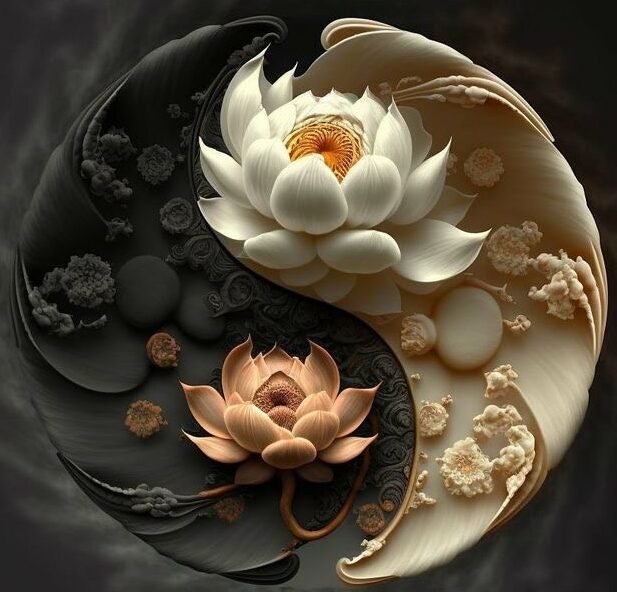"Notice that the stiffest tree is most easily cracked, while the bamboo or willow survives by bending with the wind." - Bruce Lee
In a world filled with fast-paced routines and constant demands, finding balance and harmony in our lives is essential for our well-being. While physical activities such as jiu-jitsu and yoga might seem distinct from one another, they share a remarkable connection. Both disciplines offer unique paths toward self-discovery, self-improvement, and a deeper understanding of the mind-body connection.
In this blog post, we will explore the synergistic relationship between jiu-jitsu and yoga, highlighting how the two practices complement and enhance each other. By embracing the yin and yang energies inherent in these disciplines, practitioners can achieve a state of flow, cultivating strength, flexibility, mindfulness, and overall holistic growth.
Jiu-Jitsu: The Art of Flow
Jiu-Jitsu, a martial art originating from Japan and popularized in Brazil, is often referred to as the “gentle art.” It emphasizes using leverage and technique to overcome opponents rather than relying solely on brute force. Jiu-Jitsu encourages practitioners to flow with their opponents, adapting and redirecting energy to gain control. This fluidity and adaptability are fundamental aspects of the gentle art.
Similarly, the concept of flow is central to the philosophy of yoga. The fluid movements and transitions in jiu-jitsu resonate with the flowing sequences in yoga, creating a harmonious connection. The practitioner learns to listen to their body, become present in the moment, and respond intuitively. The gentle art teaches patience, resilience, and humility, fostering personal growth and self-awareness.
Yoga: The Union of Mind, Body, and Spirit
Yoga, an ancient practice originating from India, focuses on the union of mind, body, and spirit. Yoga comes from the Sanskrit word meaning “Yoke” or “union.” In short, yoke means to bind together or unite. It incorporates physical postures (asanas), breath control (pranayama), and meditation to cultivate self-awareness and inner peace. Yoga promotes flexibility, strength, and balance, both physically and mentally.
The yoga philosophy encourages practitioners to be mindful, embracing the present moment with acceptance and compassion. This mindfulness carries over to jiu-jitsu, where practitioners must stay grounded, focused, and aware of their surroundings. By integrating yoga into their routine, jiu-jitsu practitioners can enhance their mental and emotional well-being, reducing stress and promoting a calm state of mind.
The Intersection of Jiu-Jitsu and Yoga
When jiu-jitsu and yoga converge, a powerful synergy arises, unlocking new dimensions of growth and self-discovery. Here are some ways in which these disciplines intersect:
a) Physical Conditioning: Both jiu-jitsu and yoga offer unique physical benefits. Jiu-jitsu builds strength, endurance, and cardiovascular fitness. Yoga, on the other hand, enhances flexibility, balance, and body awareness. By combining the two, practitioners can achieve a well-rounded physical conditioning that supports their jiu-jitsu techniques while preventing injuries.
b) Breath Control: Controlled breathing is vital in both jiu-jitsu and yoga. In jiu-jitsu, proper breathing helps maintain composure, conserve energy, and execute techniques with precision. In yoga, breath control deepens the practice, calms the mind, and facilitates the flow of energy. The synchronization of breath and movement creates a profound sense of harmony and focus.
c) Mindfulness and Presence: Jiu-jitsu and yoga demand a heightened state of mindfulness and presence. In jiu-jitsu, being fully present allows practitioners to anticipate their opponent’s moves and react effectively. In yoga, mindfulness will enable practitioners to connect with their bodies, observe sensations, and release tension. Combining the two practices strengthens the ability to remain present in all aspects of life, cultivating a deep sense of awareness.
Embracing the Yin and Yang
The principles of yin and yang, representing opposing but complementary forces, play a significant role in both jiu-jitsu and yoga. Jiu-jitsu embodies the yang energy, characterized by strength, intensity, and assertiveness. Yoga embodies the yin energy, representing flexibility, calmness, and surrender.
By embracing the yin and yang energies present in jiu-jitsu and yoga, practitioners can find balance within themselves and in their training.
The strength and intensity of jiu-jitsu can be softened and balanced by the flexibility and calmness of yoga. Similarly, the gentle and surrendering nature of yoga can be empowered by the assertiveness and resilience of jiu-jitsu. This integration cultivates a harmonious union within, fostering personal growth on and off the mat.
Conclusion
Jiu-jitsu and yoga, though distinct in their techniques and origins, share a deep connection that promotes balance, self-discovery, and holistic growth. By combining the fluidity of jiu-jitsu with the mindfulness of yoga, practitioners unlock new dimensions of strength, flexibility, and mental resilience.
The yin and yang energies present in both disciplines merge, creating a harmonious union that fosters personal growth on physical, mental, and spiritual levels. Whether you are a jiu-jitsu practitioner looking to enhance your training or a yogi seeking to expand your practice, embracing the flow of gentle art can bring profound benefits to your life.
About
Caleb Young graduated from California State University, Northridge, with a BA in Psychology, envisioning becoming a licensed clinical social worker (LCSW) working with active duty military/families/veterans. Caleb has volunteered with various mental health nonprofits, including You Matter Not Alone, Working Dogs For Warriors, and Heroes Project. He enjoys reading/writing, Jiu-Jitsu, and exploring the great outdoors. Follow Caleb on Instagram and Facebook.

